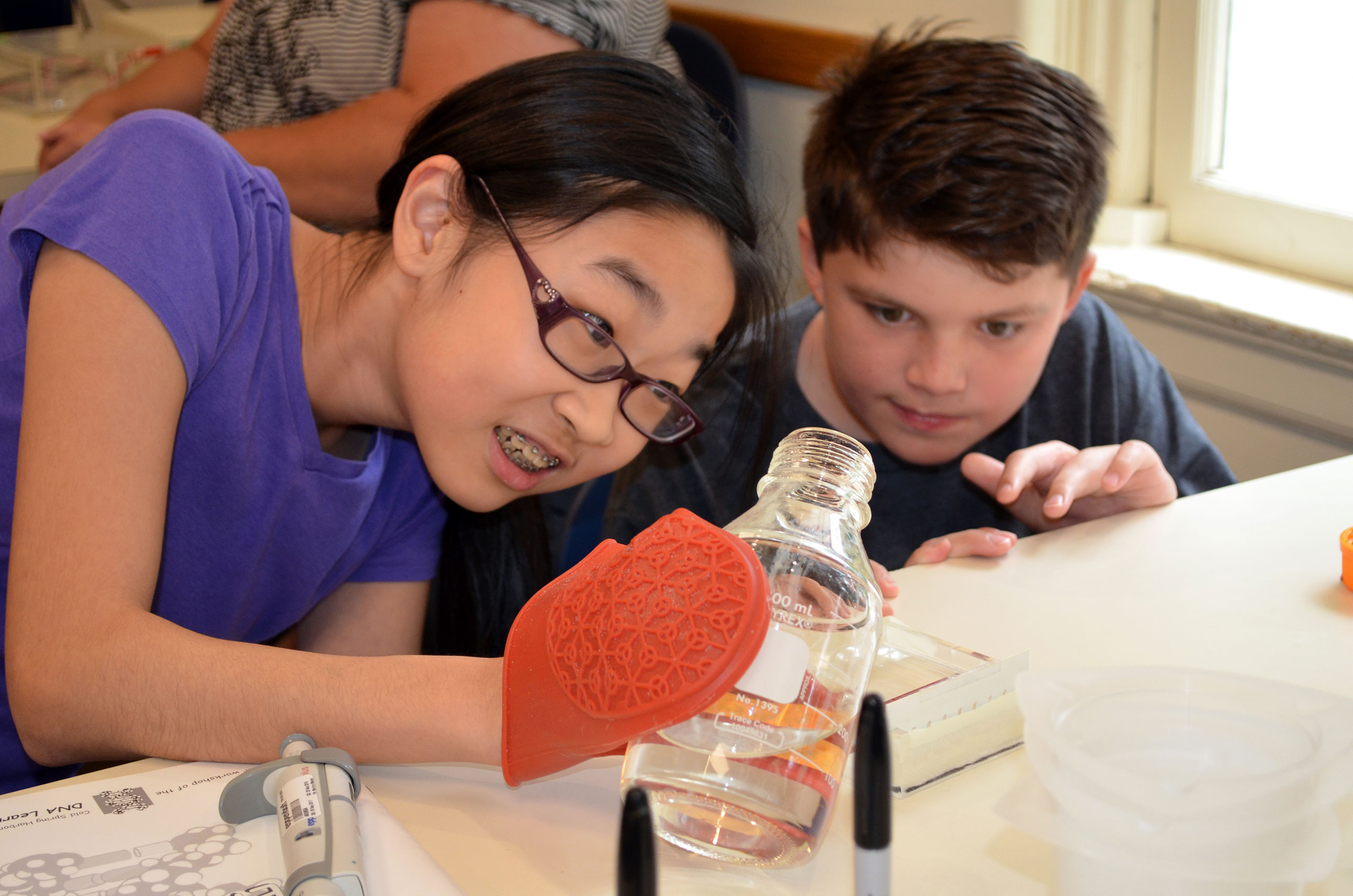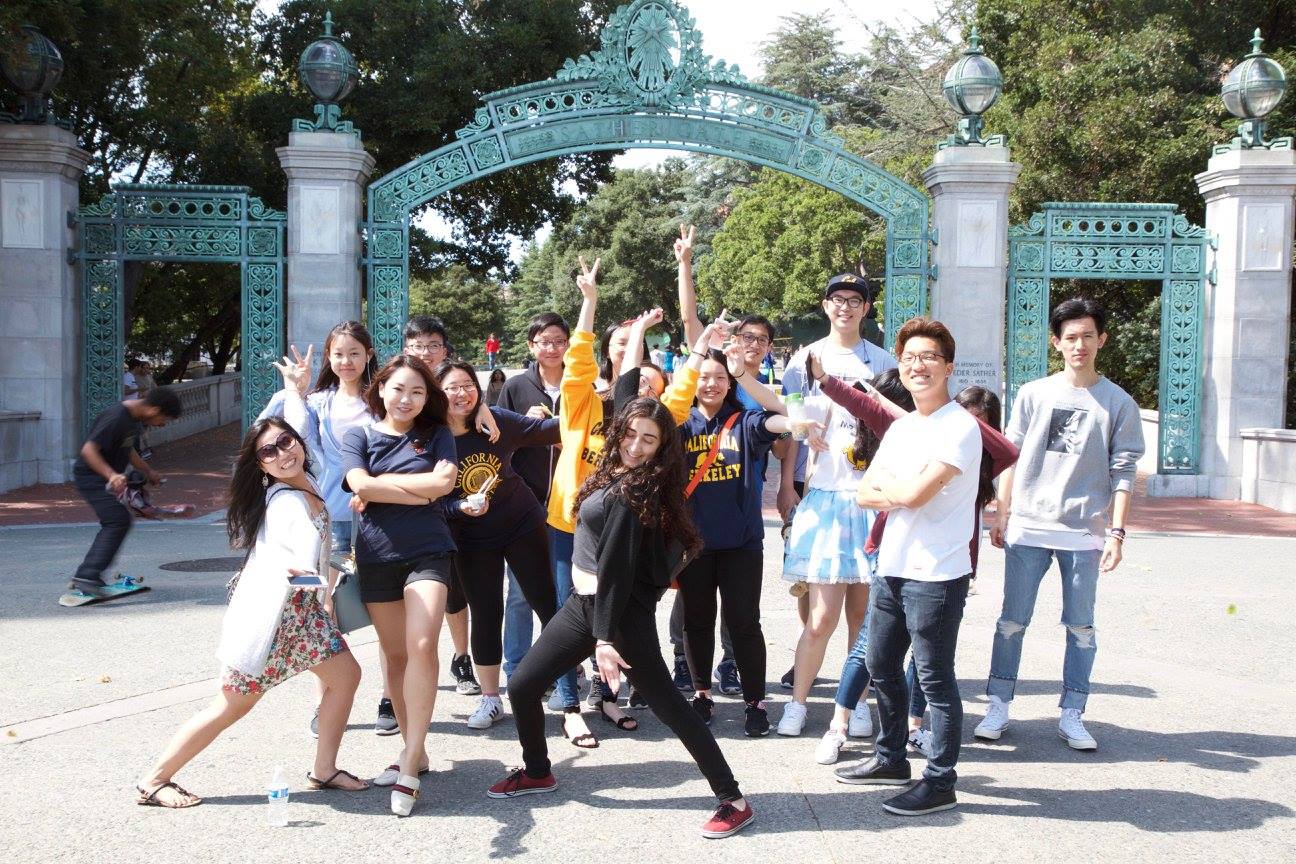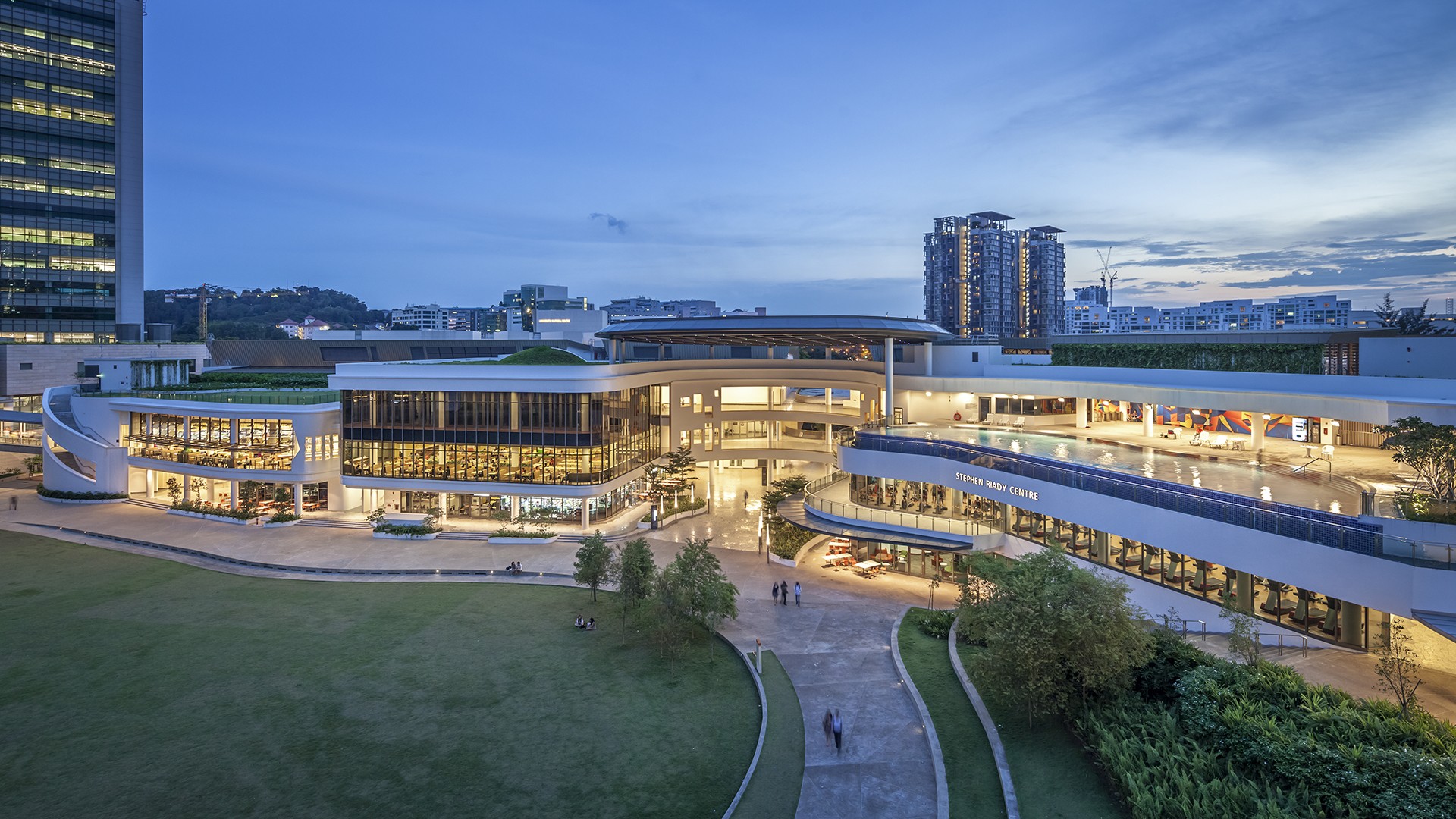NUS Winter School中文官网

Scan to sign up
Participation process
1.Sign up: Scan the above QR code, fill in the personal information, select the project and subject, submit the registration information, and complete the registration
2.Pay the fees: Please pay the fee after reading and signing the agreement
3.Preparation:
- Independent preparation: Registered students can prepare their language and knowledge independently according to the selected courses
- Join the class group: Pay attention to the class opening email 1-2 weeks before the project starts, and join the group in time
4.Participation: Attended classes on time and completed the homework and completion assignments assigned by the tutor
5.Obtain the authoritative project completion certificate: Students who meet the completion requirements (attendance; Completion work, etc.), will receive an official project completion certificate
6. More opportunities: At the end of the project, students with excellent performance will have the opportunity to get an interview invitation, and the interview content will have the opportunity to be posted on ASDAN's wechat or Outlook student weekly.In addition, participating students can also sign up to join Astan World Famous School Club, Club members will have the opportunity to participate in more world famous school projects as a teaching assistant, and get the opportunity to communicate and cooperate with international famous school tutors.
Subjects
Data Analytics and Mathematical Statistics
Biomedicine
Economics
Psychology
— National University of Singapore —
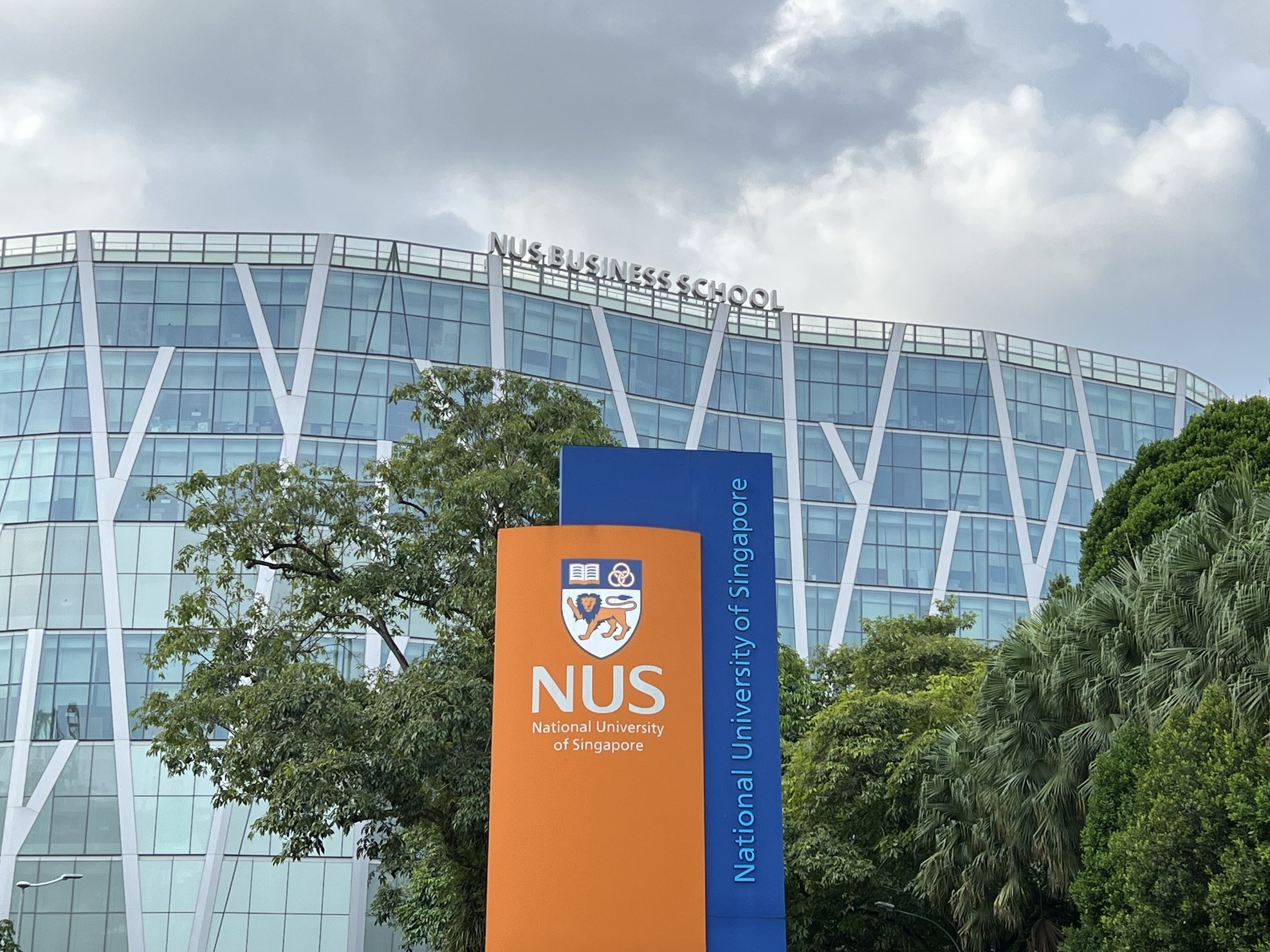
National University of Singapore
The National University of Singapore (NUS) is a leading global university centred in Asia. NUS is well known for its research strengths in Mathematics, Economics, Life Sciences and Biomedicine, Social Sciences and Natural Sciences. NUS ranked Asia's top university and 8th in the world in the 2024 QS World University Rankings. Notable subject-specific rankings include 6th in the world for Computer Science and Information Systems, 11th for Data Science, 5th for Physics and Astronomy, and 3rd in Asia for Life Sciences and Medicine. Furthermore, NUS is positioned 1st in Asia for both Economics and Econometrics, as well as Psychology, according to QS.
School of Continuing and Lifelong Education
The National University of Singapore's School of Continuing and Lifelong Education (SCALE) was established in June 2016. It has curated a series of academic programs for outstanding global youth, aiming to expand knowledge, enhance innovative potential, instill a sense of global responsibility, and comprehensively cultivate 21st-century competencies. Through the innovative culture, outstanding academic influence, and global responsibility of the National University of Singapore, SCALE seeks to empower students in navigating the digital age and developing essential skills for the 21st century.
The Faculty of Arts and Social Sciences
The Faculty of Arts and Social Sciences (FASS) at the National University of Singapore (NUS) was established in 1929 and is one of the largest faculties at NUS. FASS focuses on in-depth research in the fields of Asian Studies, Humanities, Social Sciences and Languages. The faculty is committed to exploring cutting-edge disciplines in the humanities and social sciences, continually expanding the boundaries of knowledge. In 2013, FASS launched the FASStrack Asia: The Winter School, dedicated to providing high-quality academic courses for outstanding young talents worldwide. The programme aims to enhance participants' competitiveness and offers a variety of thematic courses taught by esteemed faculty.



— Why Us? —
2024年暑假,阿思丹(ASDAN China)与新加坡国立大学持续与终身教育学院、文学暨社会科学院携手开放线下项目,同期开放数据分析、生物医学、人工智能与物联网、纳米物理、经济学、心理学六大主题学科,涵盖文理不同领域。阿思丹学员将亲自前往新加坡国立大学,在专业教师团队的领导下感受深度实践式学习模式,深入研讨学科尖端课题,拓展学术眼界,激发专业研究兴趣。
NUS Immersive Learning Experience
This programme is offered by the School of Continuing and Lifelong Education and The Faculty of Arts and Social Sciences at the National University of Singapore. During the programme, students will immerse themselves in the NUS campus environment, experiencing the authentic atmosphere of a prestigious institution.
Certificate of Competence
Successful participants who complete all requirements of the programme will receive a certificate of completion issued by NUS. Some outstanding participants will also receive a commendation letter.
Project-based Learning
NUS Winter School selects and assigns tutors to conduct the course. The course is divided into two modules: lecture and tutorial. Project-based learning will develop students' teamwork skills while stimulating critical thinking, creativity, and problem-solving skills to prepare them for undergraduate study in the future.
Visits to Prominent Enterprises and Cultural Exploration
During the programme, students will have the opportunity to visit renowned Singaporean companies, engage closely with industry experts and workplace professionals, gaining insights into industry trends. Additionally, there will be opportunities to explore iconic entertainment and cultural venues in Singapore, such as the National Museum of Singapore, the Night Safari, and Merlion Park.
— Teaching Faculty —
*The final instructor will be decided by NUS
-

Dr. Edmund Low
National University of Singapore Senior LecturerDr Edmund Low is a senior lecturer with the University Scholars Programme (USP) at the National University of Singapore. He has more than 14 years of academic and professional experience in the use of datadriven tools to answer questions in public health and the environment. His past projects include the use of programming and visual libraries to develop simulation models for automating workow processes, and the setting up of remote environmental sensing systems to automate real-time continuous monitoring, for early incident warning. Edmund holds a PhD in Environmental Engineering from Yale University.
Seow Teck Keong
National University of Singapore Deputy Director and Associate ProfessorProfessor Teck Keong has extensive teaching experience teaching basic biology and biochemistry courses in the Department of Biological Sciences at the National University of Singapore. His appointments as Resident Fellow of King Edward VII Hall and as Director for Residential Life and Resident Fellow at the College of Alice and Peter Tan have also motivated him to leave a lasting and positive impact on his students. -

Jia Lile
National University of Singapore Assoc. Prof. in the Department of PsychologyAssociate Professor Jia Lile graduated with a Bachelor of Social Sciences (First Class Honours) from the Department of Psychology, NUS, in 2007. In 2012, Assoc. Prof. Jia obtained his Ph.D. in Social Psychology from the Department of Psychological and Brain Sciences at Indiana University Bloomington, USA. He currently directs the Situated Goal Pursuit Lab (the SPUR lab) at the Department of Psychology. He is also a core faculty member of the Institute for Application of Learning Science and Educational Technology and the Center for Population Health. His research has received generous funding from the university and various public agencies.
Guillem Riambau
National University of Singapore Visiting Scholar, PhD from Boston UniversityDr Guillem Riambau holds an undergraduate degree in economics and another one in political science, both awarded by the Universitat Autònoma de Barcelona (Spain). He obtained his PhD in Economics from Boston University in 2012 (USA). Dr Riambau has ample experience teaching in the most diverse settings and classrooms: he has lectured in Boston University, Harvard University, Universitat Autònoma de Barcelona, Yale-NUS College and NUS, among others. He currently holds an assistant professor position at the Universitat de Barcelona, and regularly visits NUS.
— Course Content —

Data Analytics and Mathematical Statistics

Biomedicine

Nanophysics

Economics

Psychology
● How to reason with data
● Cleaning and exploring our data
● Using our sample and assessing the findings
● Investigating trends and relationships
● Reviewing our quantitative analyses
* The above are teaching themes from previous years' NUS programmes, provided for reference.
The programme will also discuss the fundamentals of cellular and molecular biology (e.g. how viruses entry the host and interact with host cells).
● The foundation knowledge of cell and molecular biology
● Virus Action Research
● Mathematical Modelling of Epidemics Workshop
● Bioinformatics
● Life Sciences and Ethics
* The above are teaching themes from previous years' NUS programmes, provided for reference.
In this course, students will gain insights into the latest artificial intelligence and machine learning technologies. They will grasp the fundamental principles of artificial intelligence and machine learning and their practical applications in various modern businesses. Students will understand how machine learning can enhance operational performance and efficiency in business. Mentors will guide students in becoming familiar with the Orange Interface (an open source data visualization and machine learning modeling tool) and understanding the entire process, from data import and preprocessing to model training and evaluation.
● Introduction to AI
● AI Applications: State of the ar
● How to install and use Orange
● Clustering, Function Estimation, Classification and KNN
* The above are teaching themes from previous years' NUS programmes, provided for reference.
● Nanoscience and Materials
● Applications of Nanotechnology
● Exploration of Optical Microscope Techniques
● Exploration of Optical Microscope Techniques
● Focused Laser Beam Techniques
● Methods for Fabricating Nanostructures
* The above are teaching themes from previous years' NUS programmes, provided for reference.
● Economic Policies
● Microeconomics
● Macroeconomics
● Economic Theory
● The Impact of Economic Decision-Making
● Economic Choices in a Globalized Context
* The above are teaching themes from previous years' NUS programmes, provided for reference.
● Psychological Analysis
● Classic Theories in Psychology
● Scientific Research in the Field of Psychology
● Modern Impact of Technology on Psychology
● Truth Behind Human Thought and Behavior
● Influence of Social Networks
* The above are teaching themes from previous years' NUS programmes, provided for reference.
— Sample Schedule —
* The specific schedule may be subjected to slight adjustments based on actual circumstances.
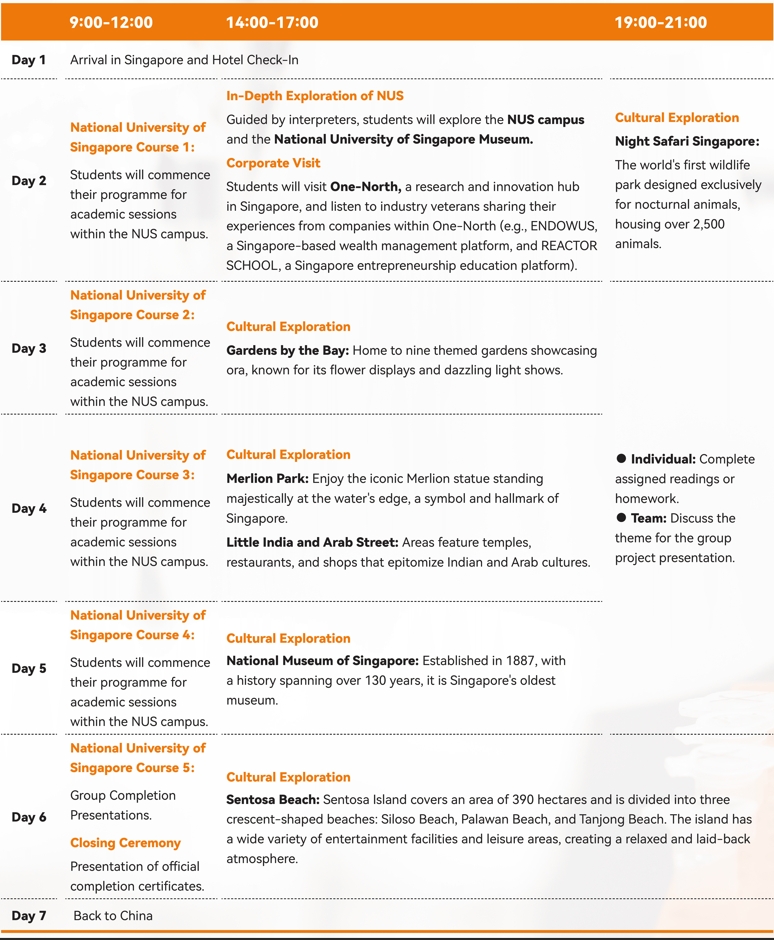
— Outcomes —
*The images shows the offcial participation certificate and assessment report sample of the School of Continuing and Lifelong Education (SCALE) at the National University of Singapore.
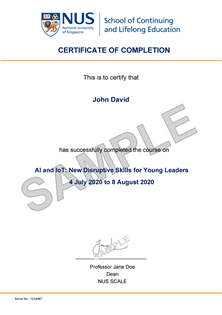
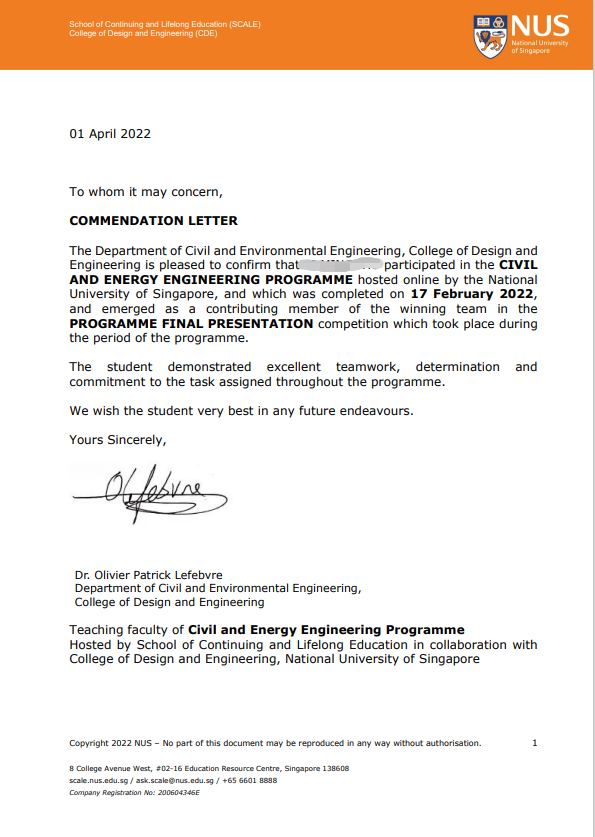
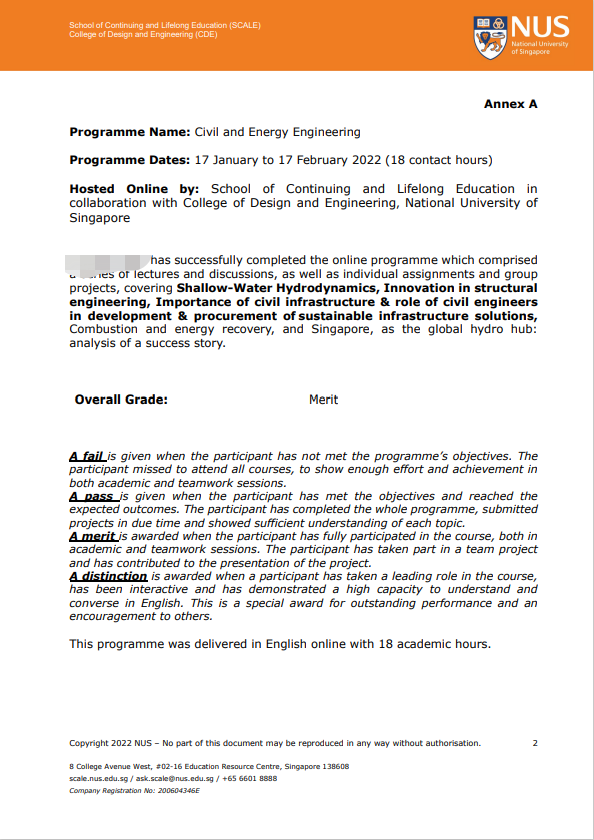
*The images shows the official participation certificate and evaluation report sample of the Faculty of Arts and Social Sciences (FASS) at the National University of Singapore.
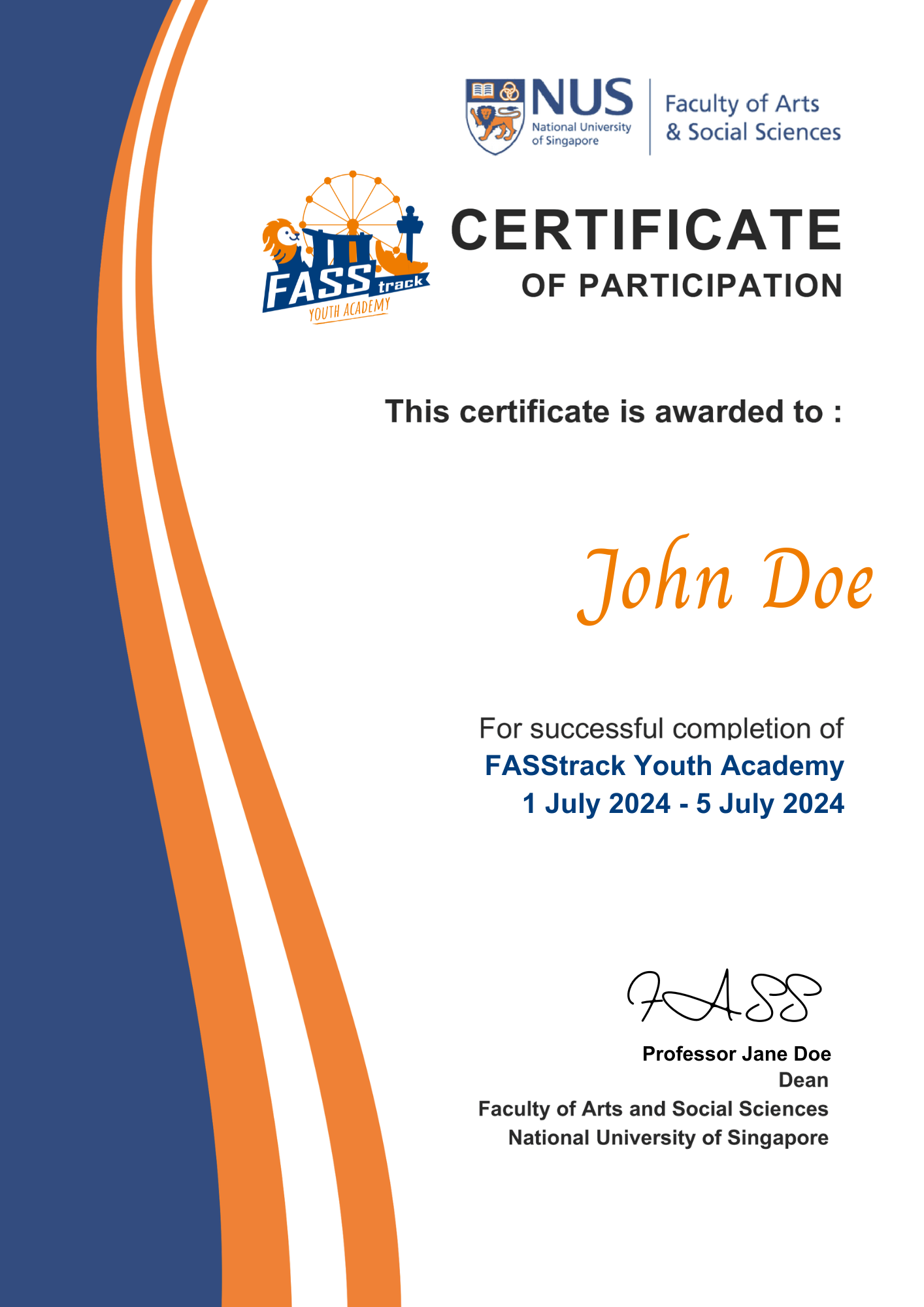
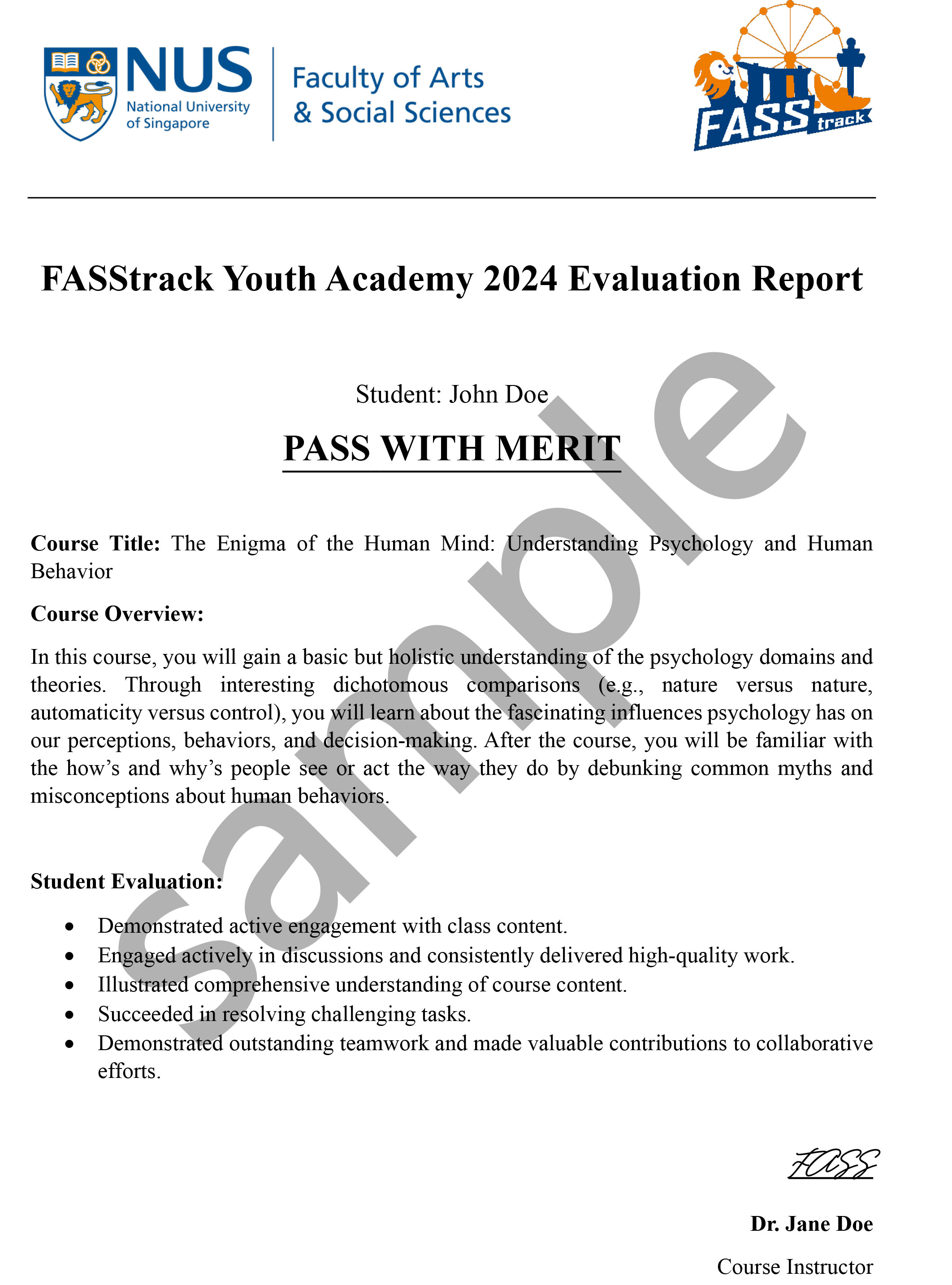
— Application —
Details
- Date: Feb.2nd-Feb.8th, 2025 (7 days)
- Location: Singapore
Subjects: Data Analytics and Mathematical Statistics, Biomedicine
- Quota: 40 students per subject
Subjects: Economics, Psychology
- Quota: 30 students per subject
Requirements
- English language level equivalent to IELTS level 6.0 or TOEFL 80
- Recommendation letter from your teacher as proof of English proficiency, or a phone interview with an ASEEDER staff member
- Priority for awarded students from ASEEDER STEM assessment
Fee
- Includes: tuition, course materials, accommodation, breakfast, excursions fees; ASEEDER group leader service fee; local transportation fees; international insurance.
- Excludes: international transportation costs to and from Singapore (departure and arrival from Beijing/Shanghai/Shenzhen/Hong Kong, you can use a third-party service or ASEEDER China's unified service); lunch and dinner.



